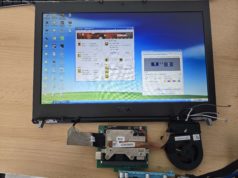While so many virtual reality hardware companies have been tasked only with selling their own product, Oculus has had the intense challenge of building the..
While so many virtual reality hardware companies have been tasked only with selling their own product, Oculus has had the intense challenge of building the entire industry’s ecosystem for the last several years. That growth has come with some hiccups by way of lawsuits, product launch delays and executive shakeups, but Oculus is still very much alive and well under its parent company, Facebook, which has placed the company at the forefront of its 10-year project to take VR mainstream.
I had a chance to sit down with Oculus’ co-founder and head of Rift Nate Mitchell to hear about the company’s latest price cuts, some of the internal reorganizations within the company and what the likelihood was of getting Rift support on the Mac anytime soon. He’s been trained how to talk to the media quite well, but he had a few key insights to share on what’s going on over at the company.
First things first, today Oculus announced that they are slashing the prices of the Rift and Touch by $100 each, bringing the price to $598 for both. Part of this aggressive move is to drive more Rift users to Touch, even though adoption has already been “very good,” according to Mitchell.
“I’m super excited to hear so much momentum behind Touch,” Mitchell says. “Super successful accessories of system-seller experiences have an attach-rate of somewhere in the 20 to 30 percent range, which is unheard of for a successful product. Our overall Touch attach is much, much higher.”
As Oculus looks to drive overall adoption of their entire ecosystem, one thing they’ve been looking at is lowering system requirements for the devices that power the Rift. Oculus has spent much of the past year working on software workarounds that allow users with less bleeding edge-specced computers to have satisfying experiences on Rift. The two biggest advances have been the perplexedly named Asynchronous Timewarp (ATW) and Asynchronous Spacewarp (ASW), which take some technical voodoo to ensure that frame rates are kept high and hiccups are left indistinguishable, thanks to some software wizardry.
During our interview, I noticed Mitchell’s work laptop, a last-gen MacBook Pro, sitting in the corner of the room, at which point I asked about the Rift’s lack of support for Mac. Earlier Oculus development kits initially supported some of Apple’s more full-featured computers, but the more stringent spec requirements of the Rift ultimately left Mac users out of the loop for the product’s consumer launch.
Home
United States
USA — software Oculus co-founder talks new Rift pricing, Touch adoption and possible Mac support






